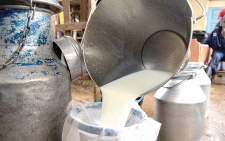Lenders are on recovery path – report

Kenyan banks expect the sector to bounce back in two years despite concerns of non-performing loans, subdued demand and increasing credit risk due to suppressed demand in the market.
The task for the lenders, however, will be how to manage credit risk, while at the same time lending to cash-strapped small and micro-enterprises (SMEs).
“Banks expect easing of measures to contain coronavirus as mass vaccination is achieved.
This will automatically open up businesses, people to return to work and businesses hiring people,” says the latest Total Tax Contribution of Kenya Banking Sector report.
The report by the Kenya Bankers Association (KBA) for the periods ending December, 31 201 and December, 31 2020 indicates that 44 per cent of the 32 participating banks were optimistic of meeting targets, but say this will depend on government backing.
“The bank projects the phasing out of containment measures over one year period, with the economy bouncing back to its potential a year later,” said the report in part.
During that period, the total tax contribution of the banking industry fell by Sh15.3 billion to Sh104.8 billion as the pandemic shocks hit the sector.
Restructured loans
Central Bank of Kenya (CBK) data says since Covid-19 pandemic hit Kenya in March 2020, lenders had restructured loans amounting to Sh1.7 trillion by end February 2021, which accounts for 57 per cent of the banking sector’s gross loans.
Following the resumption of repayments and some pay-offs, the outstanding restructured loans as at end February 2021 amounted to Sh569.3 billion or 19 per cent of the total gross loans with over 95 per cent of the outstanding restructured loans are being repaid.
During that period, many businesses and households experienced cash flow issues and income disruption because of the restrictive measures introduced by the National Government to contain the spread of coronavirus.
As a result, banks provided support for moratoriums on principal and interest loan payments to cushion against negative economic effects of the Covid-19 pandemic impact.
Labour market was also impacted with the unemployment rate rising sharply from 5 percent in the last quarter of 2019 to 21 percent at the beginning of June 2021.
This was evident in employees’ total pay-as-you-earn (PAYE) collected in the economy from Sh 412 billion in 2019 to Sh 347 billion in 2020 – a 16 per cent decline.
Pandemic lay-offs
A total of 604 firms in Kenya sent workers home due to the coronavirus fallout, according to Federation of Kenya Employers (FKE) which said that at least 33 jobs were lost in every modern sector company between March and August 2020.
Kenya National Bureau of Statistics estimated that around 1.7 million people. But there is a glimmer of hope judging by prediction of the latest Stanbic Bank Kenya Purchasing Managers Index (PMI) Survey which shows improved private sector activity in August with employers now hiring.
The upturn in job numbers for instance, was the quickest since May when the private sector recorded one of its best performances in the pandemic period.












